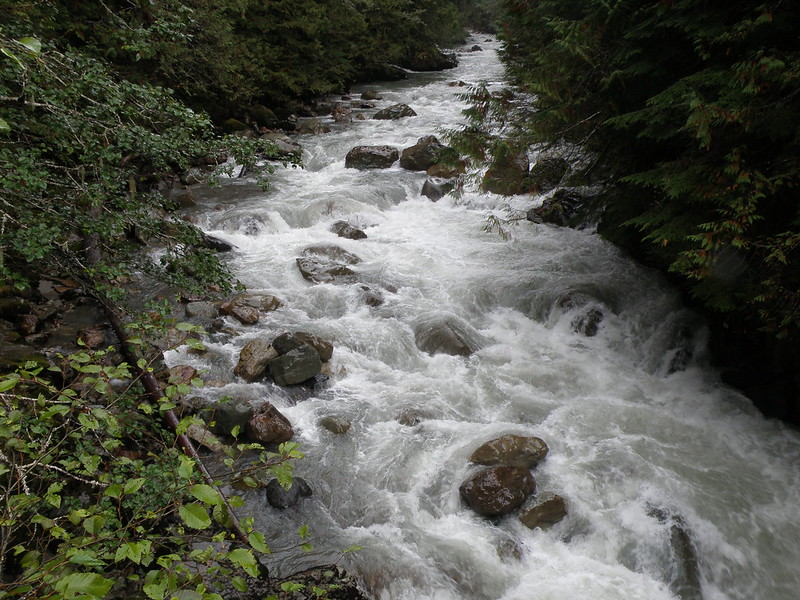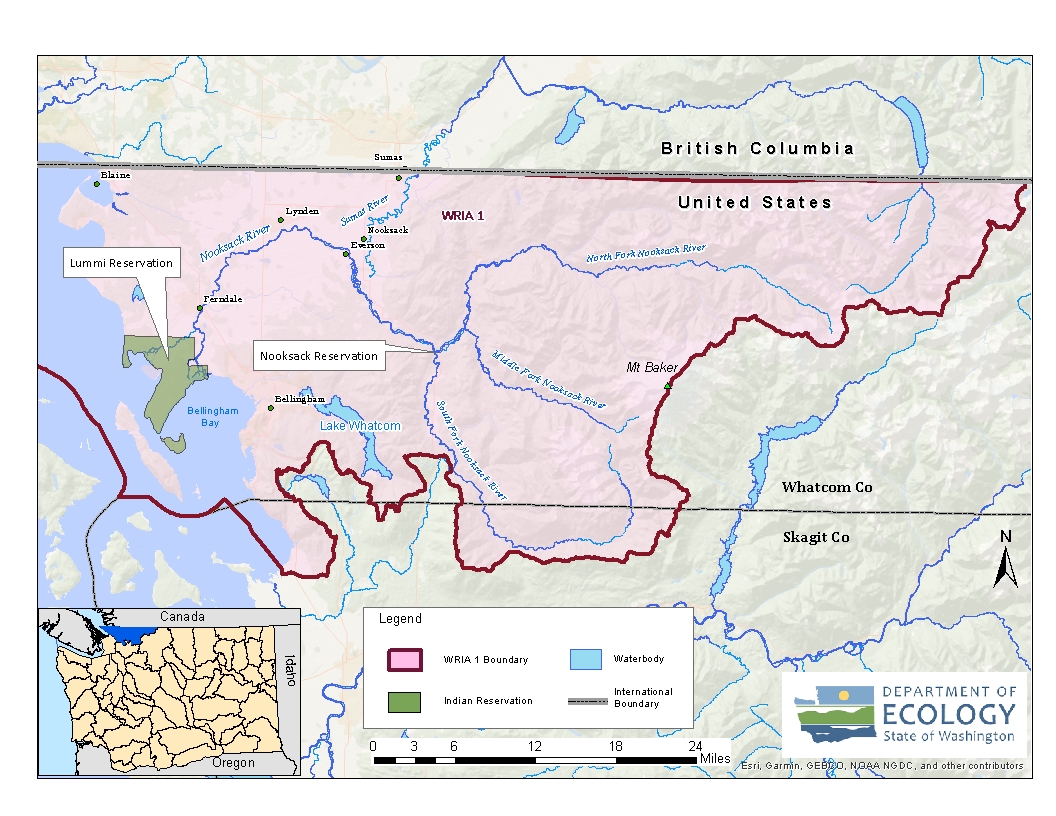
The state Legislature directed us to assess watersheds that would benefit most from a water right adjudication process. The resulting report identified two locations: the Nooksack watershed in Northwest Washington and an area around Lake Roosevelt in the eastern part of the state.
Adjudication is one tool in our water management toolbox. It is a process that brings all water users in a watershed into one big court process that leads to full and fair water management by confirming legal rights to use water. The process legally and permanently determines everyone’s water rights in that area. It creates certainty around water use and helps secure water for future use.
The Nooksack Basin
The Nooksack watershed is one of two areas we recommended for adjudication.
Whatcom County has a long history of farming, fishing and family communities. Water rights have been issued in the Nooksack Watershed for more than 100 years, and as a result most water in the watershed is already legally spoken for or “appropriated.”
Increasing demands for water over time — from ongoing population growth, agriculture, and other consumptive uses — have resulted in lower summer streamflows in many areas of the watershed. These streams are an important resource for fish. The impacts of climate change in WRIA 1 are also yet to be fully realized. However, it is apparent that water availability is limited throughout the Nooksack Watershed during the low flow season and year-round in certain areas.
Why an adjudication?
Uncertainties about water rights are found in many watersheds around the state because water supply conditions and water law have evolved over the past century. In some places, questions around tribal senior water rights, unquantified claims, and the quantity, validity, and relative priority of water rights get more difficult every year. In these areas, water rights permitting and enforcement have become extraordinarily challenging.
These challenges are an urgent problem in the Nooksack basin. Water users have faced conflict over water for many years, with many good faith attempts to settle these disputes. While Ecology respects and has been a part of several attempts at collaborative solutions led by local leaders, none have led to full and fair solutions nor a binding settlement. Therefore no one’s water use is certain and everyone is vulnerable.
Throughout the watershed, many people support adjudication and have asked us to move the process forward. Others oppose adjudication and want more time to negotiate. The community can continue negotiations while we prepare for adjudication and after the court action is filed. When and if parties agree on a settlement, this can be submitted to the adjudication court. However, without an adjudication, no agreement will ever be permanent.
Many water users want solutions, but this cannot happen without knowing where water can be legally used and what needs to stay in streams.
Who is involved?
An adjudication covers all water uses within a watershed or basin. This includes uses identified in Ecology permits and certificates, as well as those with claims to water that were made before the state adopted its water code. Tribes and federal agencies must appear in state court to prove and defend their own claims.
However, most homes and businesses in this area are served by water systems, such as public utilities, and will not participate individually in the adjudication. Public utilities will be involved to protect water rights intended for regional uses.
Additionally, Ecology staff have been on the ground for many years meeting with farmers and farming groups about their need for water rights. We have encouraged all water users who are not permit-exempt to submit water right applications, even if they did not know before they drilled their wells. Some of these permits have been difficult for Ecology to approve in the current situation. Adjudication is the best chance these farms have to identify available water and secure water for their future.
Why is this important now?
Water management is a time-sensitive problem. Each year we see more demands for water and less of it to go around. Without a solution this is likely to only get worse. By starting this process sooner rather than later, we can incorporate tribal water rights from both the Lummi Nation and Nooksack Tribe in the state court process, resolve questions about old pre-code claims, and provide legal certainty to support public and private investments in regional water supply solutions.
To do this, Ecology has asked to include a modest budget request in the Governor’s 2021 budget proposal to the Legislature. We asked for about $500,000 per year for the next two years (2021-2022 biennium) to prepare for the two recommended adjudications. The request would fund costs for the superior courts to prepare for the filing, and support databases and technology.
Ecology's recommendation proposes a deliberate and moderate pace that would include pre-adjudication work in 2021-2022, leading to the filing of a court action in 2023. This would provide about two years for ongoing negotiation and collaboration on water solutions. Ecology estimates 10-20 years for final resolution of all rights.
Read our FAQs and find more information on adjudications and any updates on our water right adjudications webpage.


